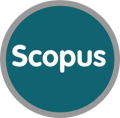The Influenced Factors of the Switching Customer to Halal Cosmetic Products
DOI:
https://doi.org/10.15575/ijhar.v3i1.10536Keywords:
customer switching, halal cosmetics, millennial generationAbstract
Ideally, a Muslim will easily decide to consume cosmetic product that have a halal label compared to cosmetic product that are not yet labeled halal. However, there are many people who switch use of product even though they are labeled halal. This study aims to analyze behavior patterns and factors that probability influence customers to switch away from halal cosmetic products. This study used primarly data with purposive sampling of 100 respondents in special region of Yogyakarta. Using logistic regression, the results show that the behavior pattern of customer switching for halal cosmetic products was dominated by the Millennial generation who have high curiosity and aggressiveness so that this generation's behavior tends to be disloyal, including consuming cosmetics with halal products. Pricing, sales promotion, reputation and sales ethics have probability to influence customer switching behavior of halal cosmetic products. The halal cosmetic industry needs to pay attention to the behavior patterns of millennial generation, especially in terms of factors that probability influence to switch from halal cosmetic products.
References
Fintikasari, I., & Ardyan, E. (2018). Brand Switching Behaviour in the Generation Y: Empirical Studies on Smartphone Users. Jurnal Manajemen Dan Kewirausahaan, 20(1), 23. https://doi.org/10.9744/jmk.20.1.23-30
Ghazali, I. (2018). Aplikasi Analisis Multivariate Dengan Program IBM SPSS 25 (9th ed.). Badan Penerbit Universitas Diponegoro.
Halal MUI. (2020). Data Statistik Produk Halal LPPOM MUI Indonesia 2012 - 2019. Retrieved Desember 2020, from http://www.halalmui.org/mui14/main/page/data-statistik-produk-halal-lppom-mui-indonesia-2012-2019
Kotler, P., & Keller, K. L. (2016). Manajemen Pemasaran. PT Prenhallindo.
Nimako, S. G. (2012). Consumer Switching Behaviour: A Theoretical Review and Research agenda. The International Journal's Research Journal of Social Science & Management, 2(3), 74-82.
Nurbaiti. (2019). Perkembangan Minat Masyarakat Pada Produk Halal Dan Label Halal Di Indonesia: Google Trends Analysis. Seminar Nasional Cendekiawan, 5(1), 1-8.
Permana, I. (2019). Customer Switching Behavior dalam Membeli Batik dari UKM. Business Innovation and Entrepreneurship Journal, 1(1), 48-52. https://doi.org/10.35899/biej.v1i1.4
Putra, Y. S. (2013). Analisis Brand Switching Handphone Blackberry Di Salatiga. Among Makarti, 6(2), 12.
Rakhi, H. (2019). Analisis Pengaruh Labelisasi Halal Terhadap Keputusan Pembelian Produk Kosmetik: Studi Kasus Kota Pontianak. Islamiconomic: Jurnal Ekonomi Islam, April. https://doi.org/10.32678/ijei.v10i1.119
Romadhon, G. (2013). Analisis faktot-faktor yang mempengaruhi perilaku perpindahan pelanggan. Jurnal Manajemen Dan Akuntansi, 2, 1-16.
Septiani, D., & Ridlwan, A. A. (2020). The Effects of Halal Certification and Halal Awareness on Purchase Intention of Halal Food Products in Indonesia. Indonesian Journal of Halal Research, 2(2), 55-60. https://doi.org/10.15575/ijhar.v2i2.6657
Standard, D. (2019). State of the Global Islamic Economy Report 2019/20. In Dubai International Financial Centre. https://cdn.salaamgateway.com/special-coverage/sgie19-20/full-report.pdf
Widianti, M., & Trinanda, O. (2019). Pengaruh Customer Dissatisfaction dan Word of Mouth (WOM) Terhadap Brand Switching pada California Fried Chicken (CFC) ke Fast Food Merek Lain (Studi Kasus pada Masyarakat Kota Padang). Jurnal Kajian Manajemen Dan Wirausaha, 1(1), 127-137.
Downloads
Additional Files
Published
How to Cite
Issue
Section
Citation Check
License
Copyright (c) 2021 Indonesian Journal of Halal Research

This work is licensed under a Creative Commons Attribution-ShareAlike 4.0 International License.
Authors who publish in Indonesian Journal of Halal Research agree to the following terms:
- Authors retain copyright and grant the journal right of first publication with the work simultaneously licensed under a Creative Commons Attribution-ShareAlike 4.0 International (CC BY-SA 4.0) License that allows others to share the work with an acknowledgment of the work's authorship and initial publication in this journal.
- Authors are able to enter into separate, additional contractual arrangements for the non-exclusive distribution of the journal's published version of the work (e.g., post it to an institutional repository or publish it in a book), with an acknowledgment of its initial publication in this journal.
- Authors are permitted and encouraged to post their work online (e.g., in institutional repositories or on their website) prior to and during the submission process, as it can lead to productive exchanges, as well as earlier and greater citation of published work (See The Effect of Open Access).

Indonesian Journal of Halal Research by Halal Center UIN Sunan Gunung Djati Bandung is licensed under a Creative Commons Attribution-ShareAlike 4.0 International License.
Based on a work at https://journal.uinsgd.ac.id/index.php/ijhar.
















